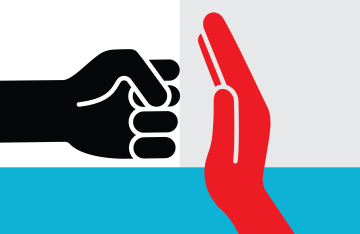“Daesh and al-Qaeda, we knew them, we already differentiated them from other groups. That was the end of the story for us. But for the Western countries, it was a war on terrorism and the story of the revolution in Syria became a story of [the] war on Daesh. And that was not our story at all.”

Following a year in which the precarity of the free press was thrown in sharp relief, with the Taliban retaking Afghanistan and Russia invading Ukraine’s borders, Annenberg student and Center for Media at Risk steering committee member Liz Hallgren speaks with Chamsy Sarkis, co-founder of SMART, a Syrian grassroots media activism and journalism organization. After a decade of pro-democracy journalism in Syria, SMART was forced to close in 2021 during the COVID-19 pandemic when international – specifically Western – funding for their work went dry. This episode investigates what SMART’s story can tell us about who gets to decide what journalism is and what a journalist looks like. If funders based in Western countries that pride themselves on a commitment to democracy won’t support independent media efforts in countries with authoritarian governments, who will? SMART’s unprecedented decade of activism provides hope for the future of grassroots media under authoritarianism, but its closure raises red flags about the role of Western funding sources in the fate of these efforts.
CREDITS
Liz Hallgren is a PhD student at the Annenberg School for Communication and a member of the Center for Media at Risk Steering Committee. Her research examines the role of media in destabilizing notions of democracy and citizenship and the ways in which from the ways in which from risk comes new media innovation.
Chamsy Sarkis is president and founder of the nonprofit ASML and director and founder of Smart News Agency, which is part of SMART, a collective of Syrian non-violent activists. He has a PhD in Human Genetics and worked as a researcher at the French National Center for Scientific Research in the field of genetic engineering. During his scientific career, he participated in various large projects, filing seven patents between 1998 and 2011. In 2012, he quit his other positions and dedicated all his efforts to the building of large civil society programs in Syria.
Jasmine Erdener is an Assistant Professor in Media and Visual Arts at Koç University in Istanbul.
This episode was produced by Liz Hallgren and edited by Jasmine Erdener.
MUSIC
- Yousef Kekhia – Al Rabta (Live in the Woods)
- Yousef Kekhia – Mafi shi byijmana
- Asala – Ya Magnon
- Nancy Zaabalawi – Moustahil
- Mehdi Aminian & Mohamad Zatari – Quieter Than Silence – Full Concert Roots Revival (2017)
TRANSCRIPT
Coming soon
FEEDBACK
We’d love to hear from you, especially if you have stories about this podcast, our Center and anything in between. Feel free to write a note or record a voice memo on your smartphone and email it to media.risk@asc.upenn.edu; you can also find us on Twitter and Facebook at @ASCMediaRisk. Though we’re a small operation, we’re always open to pitches and new stories.
Disclaimer: The views and opinions expressed in this podcast are those of the speakers and do not necessarily reflect the views or positions of the Center for Media at Risk, the Annenberg School for Communication or the University of Pennsylvania.


